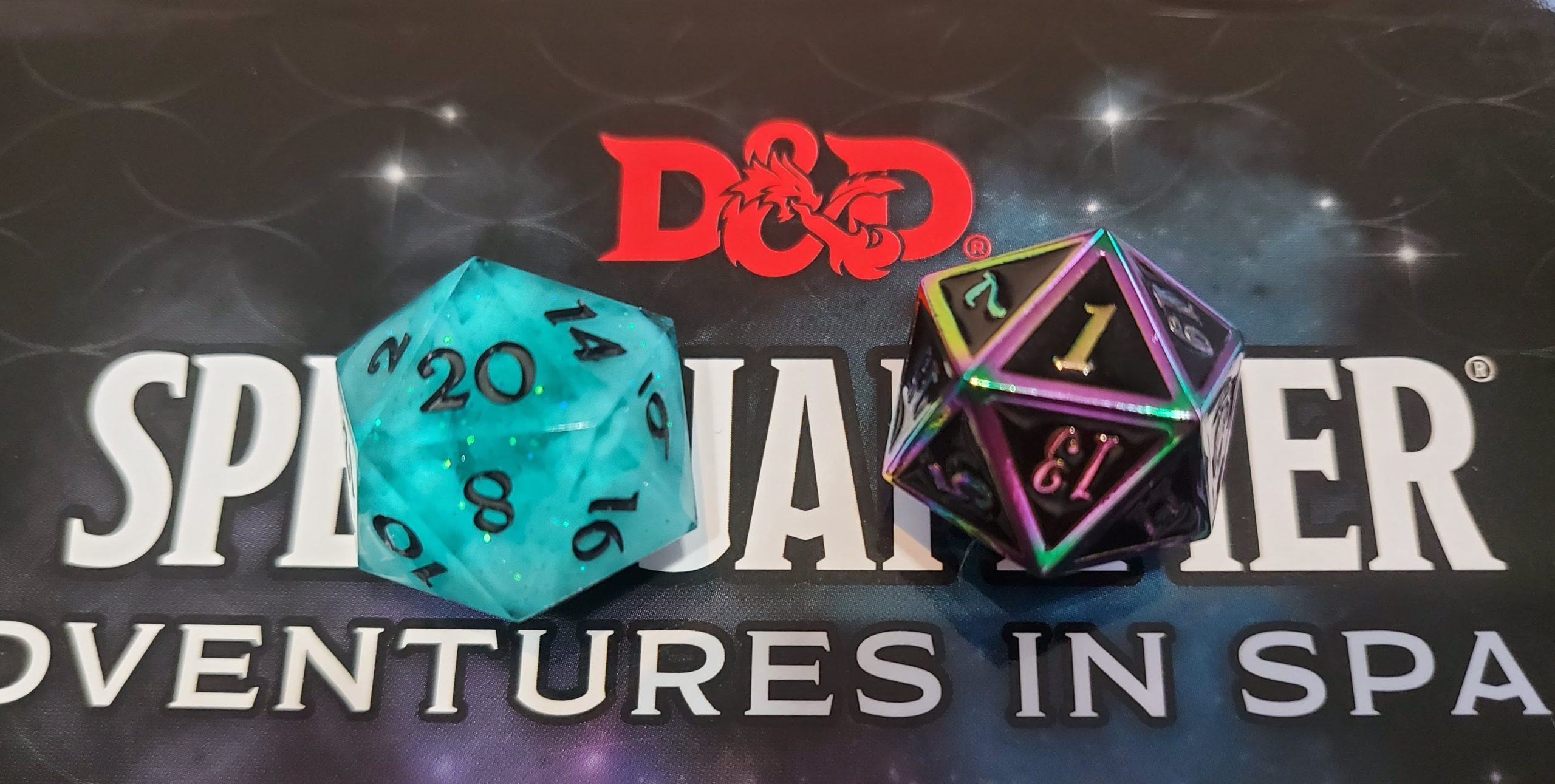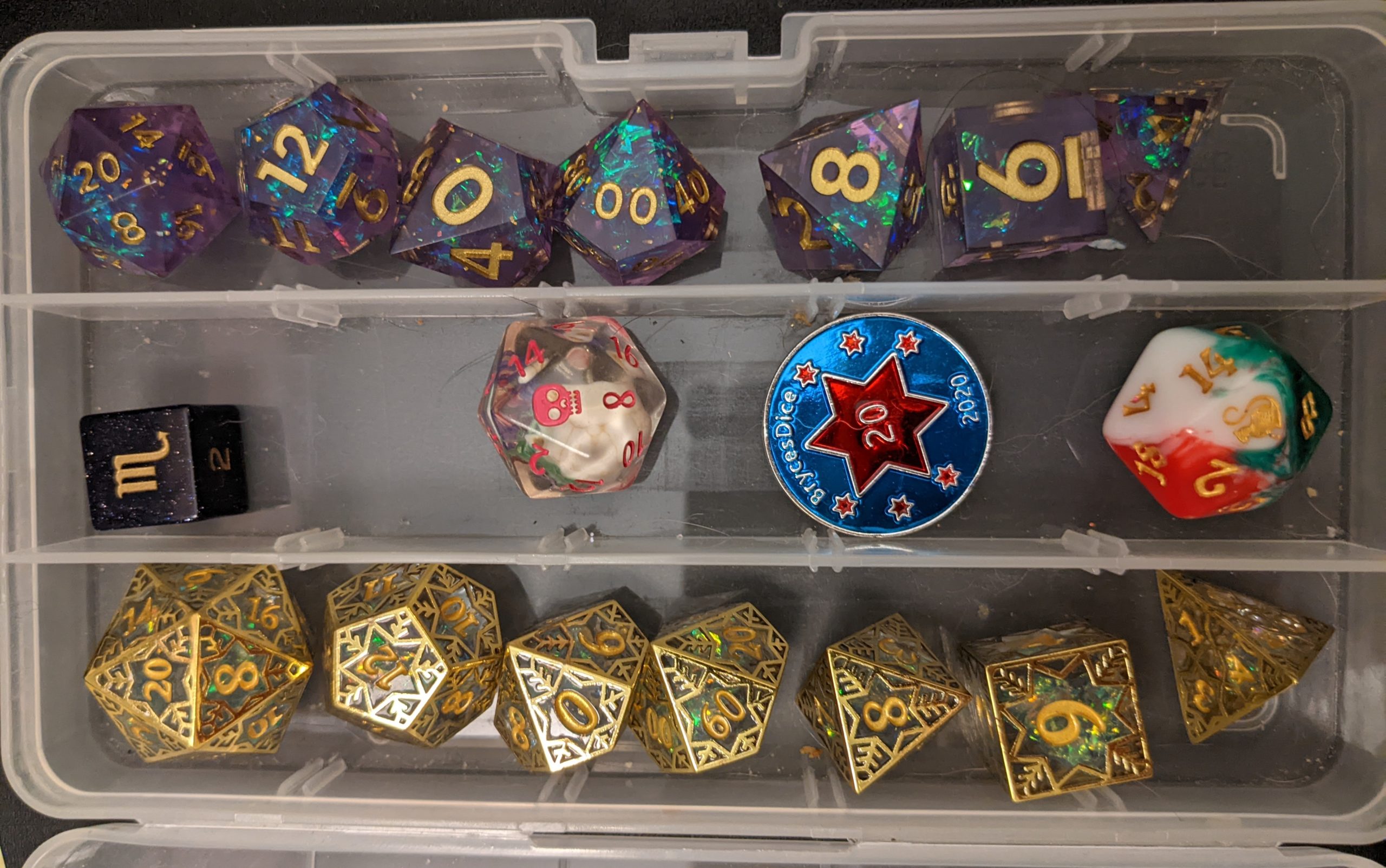Like many others, I started running games using premade modules. They are extremely convenient, reduce prep time, and are often a lot of fun. When I decided to make a serious attempt at being a Dungeon Master, I ran a Dungeons and Dragons 4e adventure called The Slaying Stone with a small group of friends over a weekend. It was an excellent little adventure with a simple hook, interesting villains, and a lot of variety for the players. We had a really good time. I followed this by running several other short adventures before deciding to dive into the something a bit meatier, Princes of the Apocalypse. I ran Princes of the Apocalypse with my primary gaming group for about two years before the adventurers (the “Brained Ravens”) found their way to the finale.
I enjoyed the premade adventures, but I found that I was personally having issues with some aspects of them. First, I don’t have a great memory, so I find myself constantly flipping through material to find things like names of locations or NPCs that I don’t recall off hand. This was exacerbated in Princes of the Apocalypse, a sandbox-style campaign, by the lack of index. Second, many campaigns and adventures don’t do anything in particular to bind characters together, they count primarily on player buy in, not character motivations or attachments. Finally, I find that the problems presented (encounters, quests, puzzles, social encounters, etc.) often have very specific intended solutions. Sometimes these solutions are fine, but players will often surprise you and leave you trying to figure out how to deal with the new solution they have created.
When I ran my first few homebrew adventures, I used the published adventures as a guide. I developed all of the pieces in advance. The first problem was an ongoing issue, I was still frantically trying to find things as I went. The second issue I still struggle with from time to time. The third issue I didn’t pay attention to at first. I developed problems my players would face and then the various DCs, these are the possible solutions. This structure made sense to me, but I was still very frequently caught off guard by my players’ solutions. So I decided to try something entirely different. something I titled The Egg Heist.
The Egg Heist
The Egg Heist had a simple premise: your character is a fledging member of a city wide crime syndicate called “The Virtuous”, you have received summons to meet with the leader of the syndicate, the “Governess”. The characters find out they were chosen to steal dragon eggs from a noble who deals in exotic animals. The noble is “protected”, so it needs to be completely secret and no killing. This solved the second problem, the characters themselves were hooked. To solve the first problem I changed the way I took notes. For this short campaign I fit everything to a single page, I fleshed out important NPCs in my head but on paper I only wrote down a few important bullet points about their personalities and motivations. My notes were short and very concise. Even the story beats were confined to a few points. However, It was in my third issue, encounters and problem solving, that I made real strides.
I created lots of problems:
- How would they travel through the rich districts unnoticed?
- How would they get into the house?
- Where were the eggs?
- How would they find out about the necessary keys?
- How would they locate and acquire the keys?
- What if they were caught by the house guards?
- How would they escape the wyvern protecting the eggs?
- How would they carry the eggs?
- How would they escape the house and get back over the bridge?
However in my notes I didn’t suggest any solutions. There was no specific desired path, I knew if I created one my players would probably just throw it out the window anyway. I found by having no specific intended solution, the players creativity was able to shine. While this requires a lot of improvisation on my part, I found that to be infinitely better than trying to make sure I followed notes as written. It also requires being comfortable with the rules of the game. I need to be able to determine a fair DC for an event very quickly as my players often suggest things entirely out of left field.
Some of the solutions were brilliant, none were planned:
- One of the players has a background as a noble, they use this to get in touch with a disgruntled son in the victim’s family and convince him to place the party on the guest list for an upcoming reception at the house. They also use the opportunity to small talk as much information out of him as possible.
- At the reception, the character poses as a representative of her house and the others are there as her guests/servants.
- Two disguised as a servants use their positions to move around the house and search rooms.
- One guest seduces the disgruntled son, lures him upstairs, disables him and uses magic to take his appearance.
- The noble character slips through the servants quarters, outside and up to search the second floor.
- The other guest spends the evening charming the lord of the house before casting “charm person” on both him and his guard, and convincing him to move the party out to the garden.
- A combination of magic and ingenuity is used to keep the eggs in the appropriate environments for transport.
It was silly, it was all unexpected, and it put the reigns very much in the hands of the players. I built the framework, but they created the story.
I have used this method of storytelling for my homebrew campaigns since. As they say, less is more. I set the stage, I make sure I have some idea of where the important points are and I set my players free to figure out the rest. While I do sometimes use published adventures (official or otherwise), they are typically just a frame for me to expand off of.
I realize not everyone is comfortable with the lack of control (or foresight), but for me has been extremely freeing. If you are comfortable with some heavy improvisation and ad-libbing, I absolutely recommend that you try it.
It is my intention to eventually make The Egg Heist available for download. The other two campaigns I mentioned are both available online:
The Slaying Stone – DriveThruRPG (affliate link)
Princes of the Apocalypse – Wizards of the Coast


